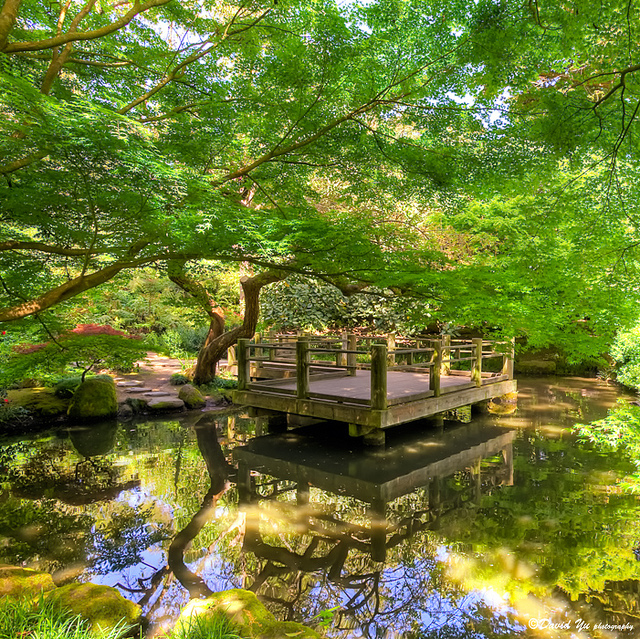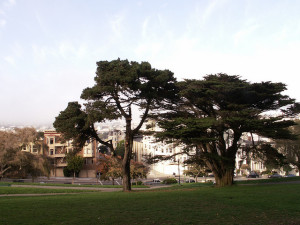It would seem a no-brainer in eco-minded San Francisco that a $195 million bond to spruce up city parks would get a thumbs up on election day. Which is why it’s surprising that environmentalists and some neighborhood groups are adamantly against the measure.
The Clean and Safe Neighborhood Parks Bond, or Proposition B, is supposed to improve the safety and quality of 200 city parks and playgrounds, enhance water quality, replant trees, and clean up environmental contamination along the waterfront.
But while everyone can agree that the improvements are badly needed, a vocal opposition says what the San Francisco Recreation and Parks Department really could use is an operational overhaul, rather than an influx of cash. A growing public distrust of the parks department is at the heart of the opposition.
“I think people are kind of fed up with how Rec and Park has been spending money,” said John Rizzo, a supervisor candidate for District 5. “Some of their money from the last bond measure has gone to questionable projects, so it seems that Rec and Park does not share the values of San Francisco.”
But city officials, who sponsored the measure, say San Franciscans shouldn’t allow divisiveness to get in the way of what the parks need.
“We don’t want to allow any disputes to delay progress,” said Mayor Ed Lee during a September campaign fundraiser at the Western Addition’s Margaret Hayward Playground. “The city deserves more unity around the things we believe in.”
The bond campaign has exposed just how critical many residents have become over the city’s parks department, which has waded into quite a number of thorny issues over the years. Artificial grass on playing fields, the Sharp Park golf course in Pacifica, new public entrance fees into park facilities, and leasing other spots out to exclusive groups and businesses — the parks department has made its fair share of enemies.
The Sierra Club’s San Francisco chapter is officially staying neutral on the bond measure, which says something about a group that’s been a longtime supporter of open space funding.
“We haven’t felt comfortable with some of their projects recently,” said the Sierra Club’s Michelle Myers. “Most notably being the rebuild of the Sharp Park golf course, which threatens two endangered species (the SF garter snake and red-legged treefrog).”
(Myers also said the bond contains too little for habitat restoration and the language in the bond for environmental projects is vague.)

Meanwhile, neighborhood groups accuse the parks department of using park facilities as cash cows for private functions while imposing new entrance fees on the public (such as the San Francisco Botanical Gardens and Strybing Arboretum), even as the parks department leases out facilities to private entities.
“We’re seeing privatization of the parks,” said Calvin Welch, a Haight Ashbury Neighborhood Council board member.
Parks advocates, including Take Back Our Parks, San Francisco Tomorrow, and SF Ocean Edge, are taking a close look at the parks department budget and pointing out what they don’t like. Nearly half of the money from the 2008 parks bond is still unspent. Staff have been laid off and the parks maintenance budget has been cut, a situation that should take priority over new project money, bond opponents say.
“They have this culture to not maintain the parks, let them fall into disrepair, then go to the ballot and ask for bonds for new facilities,” said Welch. “If they allocated money for maintenance in the first place, this wouldn’t happen.”
But bond proponents see these arguments as short-sighted. Much of the city’s park infrastructure is 60 to 80 years old. A 2007 study found that many facilities pose seismic and safety risks. From antiquated, inefficient irrigation systems, to crumbling waterfront structures, to dangerous playgrounds laced with splinters and arsenic, the parks need improvement, proponents say.
“People who are against this are throwing up red herrings to prove political points rather than focusing on what this bond actually does,” said Maggie Muir, who is running the Prop B campaign. “They criticize us for having no maintenance line in the bond budget, but it aims to improve situations in a way so that maintenance isn’t needed as much.”
And as for the “privatization,” the parks department says it’s not as bad as it’s being made to sound.
“People need to understand that we want to enhance the user’s experience in the park,” said Sarah Ballard, the park’s department public affairs director. “If that means people can enjoy things like buying coffee without having to leave the park, we don’t see how that’s harming our ability to properly manage the park.”
Golden Gate Audubon is supporting Prop B, saying it may be the last opportunity to fund the parks for many years to come. But the environmental group adds that the parks department must be held accountable for how it spends the bond money. That’s a position that some San Franciscans can get behind.
“We have the best park system in the country, period,” said District 8 Supervisor Scott Weiner. “It’s the reason people stay in the city.”


